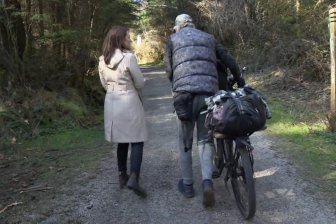New Brunswick’s health minister says everyone who wants a COVID-19 vaccine should be able to have one “by the week of June 7.”

“The more people get vaccinated, the sooner that is going to happen.”
Shephard says that means everyone should be able to receive second doses, which are already being administered for long-term care facilities and First Nations communities, by late August or early September.
The province announced Tuesday it is expanding vaccine eligibility to anyone 18 years of age or older.
“The supply, nicely, has been very steady,” Shephard said.
Currently, 47.6 per cent of eligible New Brunswickers have been vaccinated, according to the provincial dashboard.
- Naloxone-resistant street drug linked to 9 deaths in Eastern Canada seized in Alberta
- ‘She gets to be 10’: Ontario child’s heart donated to girl the same age
- Buzz kill? Gen Z less interested in coffee than older Canadians, survey shows
- Canada updating sperm donor screening criteria for men who have sex with men
Ken Darling, who received his first dose of a COVID-19 vaccine at Harrisville Pharmacy in Moncton Tuesday, says it’s an important step to get to a post-pandemic era.
“I think it’s a huge first step for Canadians and globally,” Darling said of the vaccine rollout.
“You’ve got to get inoculated and get to that herd immunization level in order to get on top of this and things will open up and go to whatever the new normal is going to look like.”
Dr. Lisa Barrett, an infectious disease specialist and researcher at Dalhousie University, says nearing the end of first doses means we’re closer to getting more second doses in arms.
“The second dose is really your university education for your immune system and everybody should be going to university right now,” she said to Global News. “It’s great that we’re getting close to first doses, doesn’t change much in your day-to-day life, but it does make it possible to start second doses.”
Barrett says other countries might not be as fortunate and able to control the spread of COVID-19, so new variants will arise for a few years.
“Likely, we are going to either need boosters or different vaccines as we move along that keep up with the change,” Barrett said. “The thing we can do to help that is to keep testing up as we go forward, make sure we know about variants, and also to keep case numbers down before they turn into waves.”
She says we’ve come a long way from having no way of treating or preventing COVID-19 — aside from distancing and masks — one year ago to now having “highly, highly effective vaccines.”
However, viruses change over time, she says.
“The best way for us to get the most use out of our vaccines and to keep them useful over time, is to make sure cases stay low,” Barrett said.
But she says she’s seen patients hospitalized because they “change a lot of their lifestyle and behaviour” after only receiving the first dose of the vaccine.
You’re only “fully protected” a couple of weeks after your second dose, Barrett stresses.
“Because vaccines prevent death and hospitalization, but not infections altogether, you’re going to have to live a little bit with ongoing testing in addition to vaccination and even sometimes, in big situations, for a while longer until we get more data, maybe even masks,” she said.
Meanwhile, Shephard says she doesn’t think it will be long until New Brunswick expands the eligibility of vaccines to 12 years and older.





Comments